Should We Take a Multivitamin?
Let me start with the part that you likely already know: The best way to hit all nutritional checkpoints is by eating a diverse range of vibrantly-colored fruits, vegetables, nuts, seeds, and whole grains.
This is hard to accomplish for a picky child, of course. Moreover, many nutrients are lost during the processing of the food most Americans eat.
For adults, there is no harm in taking a multivitamin, and some recent studies have me convinced there is value.
In general, I recommend against giving a multivitamin to very young children, for reasons I’ll explain below. My opinion is that high-quality multivitamins for kids six and older are without risk and may be beneficial.
If you opt out of taking a multivitamin, I recommend that both you and your children take a vitamin D supplement.
For breastfed infants, I like Bobbie’s vitamin D supplement.
You should also consider a fish oil supplement or a multi that contains fish oil if you or your children don’t eat fish.
If you eat several servings of fish a week, you probably don’t need a fish oil supplement.
The Case for Multivitamins
Science clearly shows that vitamins and minerals are important to overall health. Studies have also shown that the best way to get most nutrients is from our food. There is some evidence to suggest that the quality of modern soil and agricultural practices are insufficient to produce food as rich in nutrients as what our ancient ancestors ate.
Still, most researchers argue that isolating vitamins into pill form vastly reduces or even eliminates the benefits. The theory that multivitamins and supplements can “fill gaps” in our dietary intake of vitamins and minerals makes sense. And yet some studies have been unable to find health benefits when compared to placebo or non-use. Lately, though, I’ve been noting studies that DO show demonstrable benefits in populations who take a multivitamin when compared with those who don’t. This includes evidence that taking a multivitamin can offer protection against dementia and lung cancer.
Despite a lack of definitive benefit, many doctors recommend the use of a daily multivitamin. And we don’t think there is any harm in “covering your bases” by taking one.
I haven’t come across strong evidence that taking vitamins has any major downsides for most adults. There are a few worrisome studies I’ve found that don’t apply to most of my readers, but are still worth mentioning:
- Smokers who take beta carotene have an increased risk of lung cancer.
- Folic acid may increase prostate cancer risk. (This is another reason to avoid synthetic folate–more on this below!).
- Adults who take large doses of B vitamins for many years may have increased incidence of hip fracture.
Overdosing on Vitamins
You can take toxic doses of vitamins—in particular preformed vitamin A, E, and K. Look for supplements with no more than 100% of your daily value for these.
Excessive doses of vitamin C have also been shown to increase the risk of kidney stones. Most of us get plenty of vitamin C in our diets, so it’s not one that you need much of in a supplement.
What are the Best Multivitamins for Women?
If you’ve decided that you’re going to take a daily multi, then of course you want to know who makes the best multivitamin. Making this determination becomes confusing very quickly! Here is what Dr. Hopkins look at when researching the best multivitamins for women:
- Third-party lab testing. This is probably the single most important determinant when it comes to recommending a multivitamin. You want to confirm that items in the ingredient label actually match the contents of the pills you’re planning to take every day (unfortunately, this is not something you can take for granted.) You also need to make sure that your daily multi doesn’t contain concerning levels of heavy metals or other contaminants.
- The right kind of certain nutrients, including methylated folate instead of folic acid (it’s better absorbed) and D3 instead of D2 because the former is more effective at raising vitamin D blood levels.
- The interactions between essential nutrients. For instance, calcium inhibits the absorption of iron, so a pill with iron should ideally not contain calcium. On the other hand, vitamin C helps aid the absorption of non-heme iron, so we like to see C included in a multi with iron.
- The inclusion of important nutrients. We gave extra credit to brands that included things like choline in their blends. Iron, on the other, might be important for some women, and not for others.
There are only three brands that we enthusiastically recommend for multivitamins, and they are as follows.
Best Stuff: Women’s Multivitamins
Be sure to check out the comparison chart above to see the differences between these three brands!
If you, like me, hate swallowing pills, then these gummies will make taking vitamins something you actually look forward to. I take these every day after lunch when a sugar craving hits (I also take their vitamin D and probiotic).
I like this brand because their gummies don’t contain any sugar (they’re sweetened with organic apples and strawberries) are organic, and contain no synthetic vitamins. They are the only brand to make an entirely food-based vitamin, and one of very few to make their third-party testing data available. This vitamin blend does not contain iron, calcium, or choline.
Cost for one-month supply: $30
BUY from our store
Ritual’s multivitamin contains half of the number of ingredients of most multivitamins, so you’re not getting unnecessary or excessive amounts of nutrients. For instance, this multi doesn’t include calcium, because most women get plenty from their diets and it can impede the absorption of iron, which this vitamin does contain. (As a pescatarian, I like a multi with iron.)
Ritual’s multi uses methlyated folate rather than synthetic folic acid, and it contains omega-3 oil (a vegan form) in the same pill with the other nutrients. It also contains choline, which is important. Finally, Ritual’s multivitamin has an enteric coating to improve absorption of nutrients.
Cost for one-month supply: $30.
BUY from ritual
Needed’s multivitamin for women has all of the ingredients we look for in a high-quality multi. They also produced a Certificate of Analysis proving the potency and piracy of their supplements.
Needed’s multi contains a healthy dose (50 mcg) of the optimal type of vitamin D (D3). It also contains methylated folate and choline, which not every vitamin contains but which we believe is important. This one does not have iron but does have calcium.
Cost for one-month supply: $34. Use code GIMME20 for 20% off.
BUY FROM NEEDED
Other Multivitamin Brands You Asked About
There is an ever-increasing number of brands selling multivitamins to women. Here is my take on the ones you ask about most, none of which made the cut to be included in the above section of Best Multivitamins for Women. That said, many of these brands have really thoughtful ingredients and are just missing third-party test results to put them into our list above. So, I wouldn’t tell you NOT to buy them, necessarily! Just that I cannot promise their purity or potency without seeing those results. The research here was also provided by Dr. Michael Hopkins, PhD.
This subscription vitamin is ultimately a no-frills multi that contains a mix of naturally sourced (where it matters) and synthetic (where it probably doesn’t matter) non-organic, non-food based vitamins.
It’s a weird that this multi doesn’t contain folate (they are the only one we found). But they do include choline (and more than any other multi, with 20% RDA), calcium, magnesium, silica, and borate so the ingredient list seems thoughtful. This vitamin does not contain iron and it is not vegan.
Without a willingness to share any third-party test results, I cannot recommend this multivitamin.
Cost for a one-month supply: $7.50
This is not an organic or food-based vitamin, but the ingredients are high quality and not cheap synthetics.
Goop uses the good forms of vitamins D (lichen-derived, so vegan), A, and E. They also use methylfolate instead of folic acid, which is what you want to see, and the version of iron (ferrous bisglycinate) that’s formulated to be more gentle on the stomach.
We will also give Goop bonus points for containing choline, because many do not–even if it’s only a small amount (6% RDA).
We cannot recommend Goop’s multi unless they get back to us with information on third-party testing, which as of this writing hasn’t happened.
Cost for a one-month supply: $60.
This brand of multi gets some things right, including using the methylated form of folate and natural vitamin A instead of retinyl palmitate. Because Perelel’s multi comes in a trio packet, an omega-3 pill is part of your daily pills, along with a biotin-collagen supplement.
Perelel advertises their third-party testing “to confirm purity and potency,” but the representative we spoke to couldn’t share any more specifics.
Perelel’s multivitamin pack does contain cheap synthetic versions of several vitamins–this doesn’t mean they are ineffective, but for readers who really want an organic, food-based multi, it’s worth noting. They also don’t contain any iron or calcium, which might matter to certain women with specific nutritional needs.
Parelel vitamins are not vegetarian or kosher for those who care about that
Cost for one-month supply: $30.
We give Pure points for containing choline (although it’s only 5% RDA) as well as the added coenzymes and antioxidants. Some readers may want to know that these vitamins do not contain calcium or iron.
Pure uses high-quality bioavailable versions of each vitamin, but they’re not food-based. They could not provide us with any third-party testing information.
Cost for a one-month supply: $20.
You already know that I love love love Sakara meal plans, so I was excited to try their take on a multivitamin.
We like that the food ingredients in the Sakara vitamin pack are organic. Sakara uses methylated folate, natural vitamin E, and lichen-derived D3.
We also give Sakara credit for including iron in their multi, as well as additional pills (this one is a packet rather than pills in a bottle), that include calcium, magnesium, choline, a probiotic, and omega-3 oils.
Sakara’s blend does include some synthetic vitamins, including some of their beta carotene and the vitamin C they use. None of this is a deal-breaker in my opinion. Some of the vitamins have more than 1000% of the daily requirement which is typical for vitamins that are not truly food-based.
Unfortunately, we can’t recommend Sakara’s multivitamin because they won’t share any information about testing for purity or potency.
Cost for a one-month supply: $120.
Use code MAIASAKARA for 20% off everything
Thorne makes no claims of being food-based. The primary goal of this multi is to pack as much as possible into a small serving size, which they do effectively.
Thorne has the most extensive assortment of essential vitamins and minerals of any vitamin we reviewed. In addition to calcium, these include iodine, chromium, boron, and manganese for example. These do not contain iron, which is actually a good thing because of the calcium they contain.
Thorne get points for using the higher quality/more bioavailable form for several ingredients, including methylated folate and natural vitamin E.
On the other hand, they use synthetic beta carotene and palmitate for vitamin A (which can be toxic at high doses).
Thorne uses TRAACs products for all its minerals. We haven’t directly discussed the TRAACs™ minerals made by Albion, but these are proprietary synthetic versions of several essential nutrients that have been glycine chelated to make them more easily digestible and more bioavailable than natural minerals. These are synthetics by definition, but also sort of the gold standard in the supplement world for use in pills that won’t cause GI issues.
Notably, this multivitamin also contains hundreds of times more than recommended for several essential nutrients, which is also a reflection of their synthetic production, rather than being food based.
No one was able to provide us with third-party testing information.
Cost for a one-month supply: $29.
The Food Babe’s multivitamin scores high points for all of the Good Stuff criteria, but we cannot officially recommend them unless they are willing to share third-party testing.
What makes Truvani unique is that it’s all organic, and truly plant-based–the majority of the ingredients are derived from an organic food blend.
It doesn’t contain any of the problematic synthetics we see in many multis, and uses D3 from algae instead of lanolin, which makes it a vegan multi.
Some people may not like that it requires taking three large pills each day.
The folate in this multivitamin comes directly from an organic fruit blend, which we think is a plus. I do wish this vitamin included choline and magnesium.
We asked for justification on the ingredients that differ significantly from the recommended daily values. Some, like B12 and Biotin, are much higher (as much as 500%), and others, like zinc and vitamin A, are much lower (as little as 9% of what’s recommended.) We were promised a follow up from the product development team, but it never came.
As for that third party testing–the rep we spoke with stated that Truvani vitamins all undergo third-party testing for heavy metals and other contaminants but that they couldn’t share the data. When I asked about lab testing to verify the ingredient label matches the pills, they said they perform testing with every batch to ensure quality (in house) but wouldn’t share any data from that. For this reason, we don’t recommend this vitamin despite its merits.
Cost for a one-month supply: $40.
Should Kids Take a Multivitamin?
Considering how many kids take multivitamins, I was surprised to uncover very little research on the benefits and risks of this daily habit.
Part of the problem is that each brand of multivitamins contains a different cocktail of vitamins, and the quantities of each vitamin varies as well. When studies are done on “multivitamins,” they don’t seem to take these differences into consideration. Therefore, we really don’t know which combinations of vitamins and minerals carry which benefits or even which potential risks.
Here are a few red flags I uncovered:
- An association between multivitamins before the age of 6 months and increased risk of asthma among black children.
- The same study showed increased levels of food allergies among formula-fed infants who were given multivitamins before the age of 6 months, and increased levels of food allergies amongst 3-year-olds exposed to multivitamins (whether they had been breast- or formula-fed).
- Another study found that the nutrients most lacking from the diets of children ages 2 to 8–-namely, calcium and vitamin D–-remained lacking despite multivitamin use. Researchers attribute this to the fact that children’s multis are heavy in the “wrong” nutrients–B vitamins and vitamin C, for instance, both of which kids get from food. Moreover, multivitamin use led to excessive levels of certain nutrients, like iron, zinc, and copper in this study. The effects of this are unknown.
What Are the Best Multivitamins for Kids?
Overall, I think the potential for a downside outweighs the potential benefit of multivitamins for kids under about the age of about six. Of course, I defer to your pediatrician–if he or she recommends that your child take a multi, or if your child has a very restricted diet, there are a few brands that qualify as Good Stuff that you can consider.
And for older children, a high-quality multivitamin might be beneficial and probably isn’t harmful. Based on our research, there are three brands of multivitamins for kids that I can recommend.
Best Stuff: Kids Multivitamins
This is a unique gummy brand because it has no added sugar–the vitamins are sweetened with just fruit. It has a good range of naturally-derived vitamins, including 100% the daily requirement of vitamin D. As I mentioned in my review of the adult multi above: Llama is the only brand I have found that uses zero synthetic vitamins in their blend. It remains my top pick.
Cost for one-month supply: $30
Sweetened with monk fruit, Rituals chewable vitamins also contain fiber, a prebiotic, and omega-3 oils. Ritual has separate (non-chewable) formulas for teenage girls and boys, both of which adhere to Ritual’s strict ingredients sourcing policy.
Two Pills You & Your Kids Probably Need
Multivitamins may not be necessary for everyone, but there are a couple of supplements likely worth taking.
Vitamin D
Carlson is my favorite brand of vitamin D drops for babies.
Higher levels of vitamin D are protective against a variety of diseases. Vitamin D also enables calcium absorption, making it critical for growing children. Unfortunately, it’s hard to get sufficient vitamin D from diet alone (which is why I recommend time outside without sunscreen). Supplementing 400 IU a day for babies and children and 4,000 for adults makes sense, especially because vitamin D carries a low risk for toxicity. This is the vitamin D we take in my house.
Omega-3s
These fatty acids are crucial for good brain and heart function, and are found in fatty fish like salmon and sardines, breastmilk, and some nuts and seeds. If you and your kids eat fish regularly (even relatively small amounts), you are probably covered. If not, you may want to consider a DHA supplement.
Nordic Naturals Baby’s DHA is a good one, as are the Nordic Naturals supplements for adults. (Note that the orange-flavored “Fishies” by Nordic Naturals have low levels of omega-3s and are basically candy.) Ritual’s kids multivitamin also contains omega oils and is Good Stuff approved.
Another supplement that you might consider is one with B12 if you are a vegan. This one has 75% of what you need in a day.
Finally, probiotics are good for all of us, but they are beyond the scope of this post. The one that I take every day is this. UPDATE: Our probiotics guide is live!

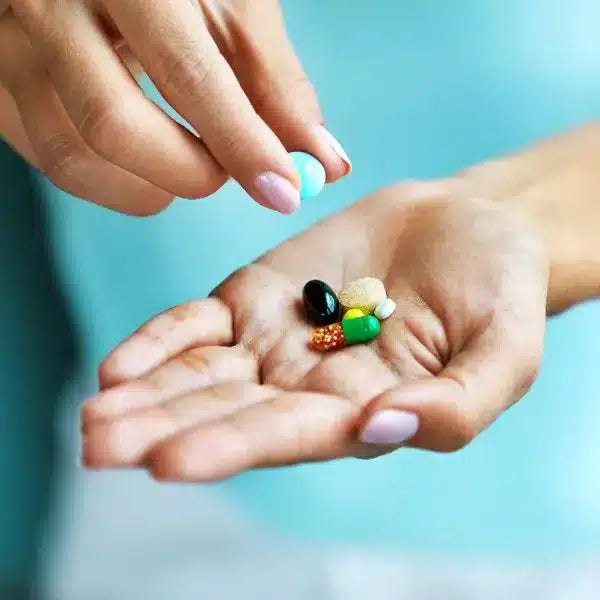
















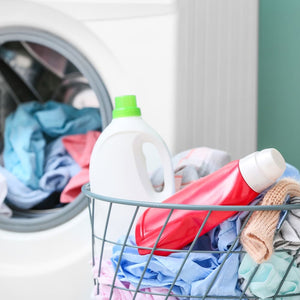
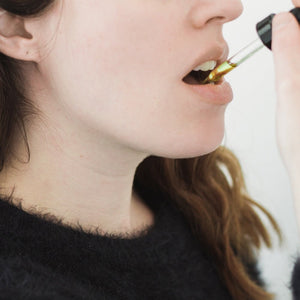
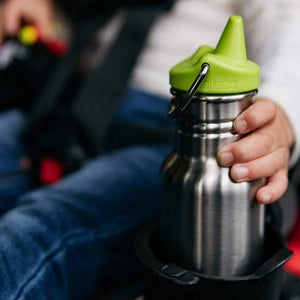
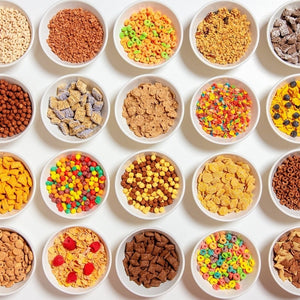



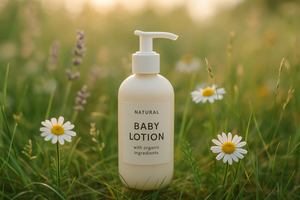
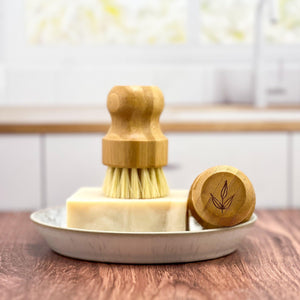
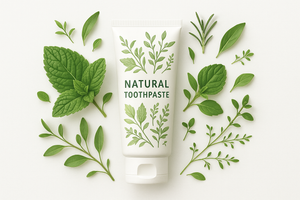
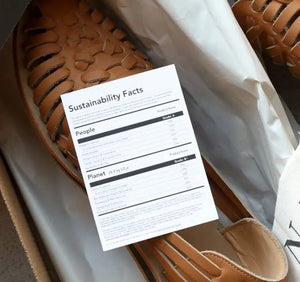

104 comments
Kelly M
Have you heard of Raise them Well? They are based out of NC and were created by a holistic/integrative medicine doctor and his wife. Would love your thoughts!
Maia James
Will make a note for the update, yes!
Maia James
glad to hear it!
Crystal
I wish that everyone realized that nutrition affects behavior and brain development. I learned the hard way with my son and now focusing on nutrition and his overall well-being. We both take FD gummies, it has become our morning ritual. We love them!
Allana
Our Pedia recommended First Day gummies for my 3 kids because it has the right amount of vitamins they need daily. It is the only vitamin they enjoy. I switched from Hiya to FD and I think I am staying.